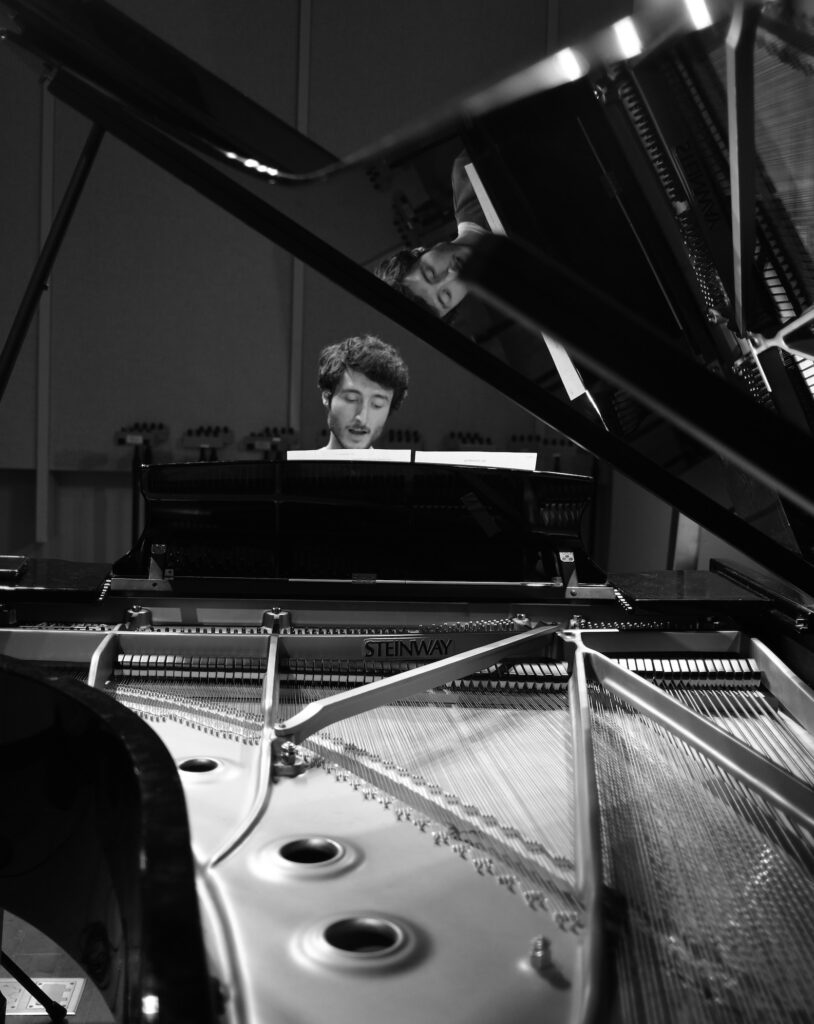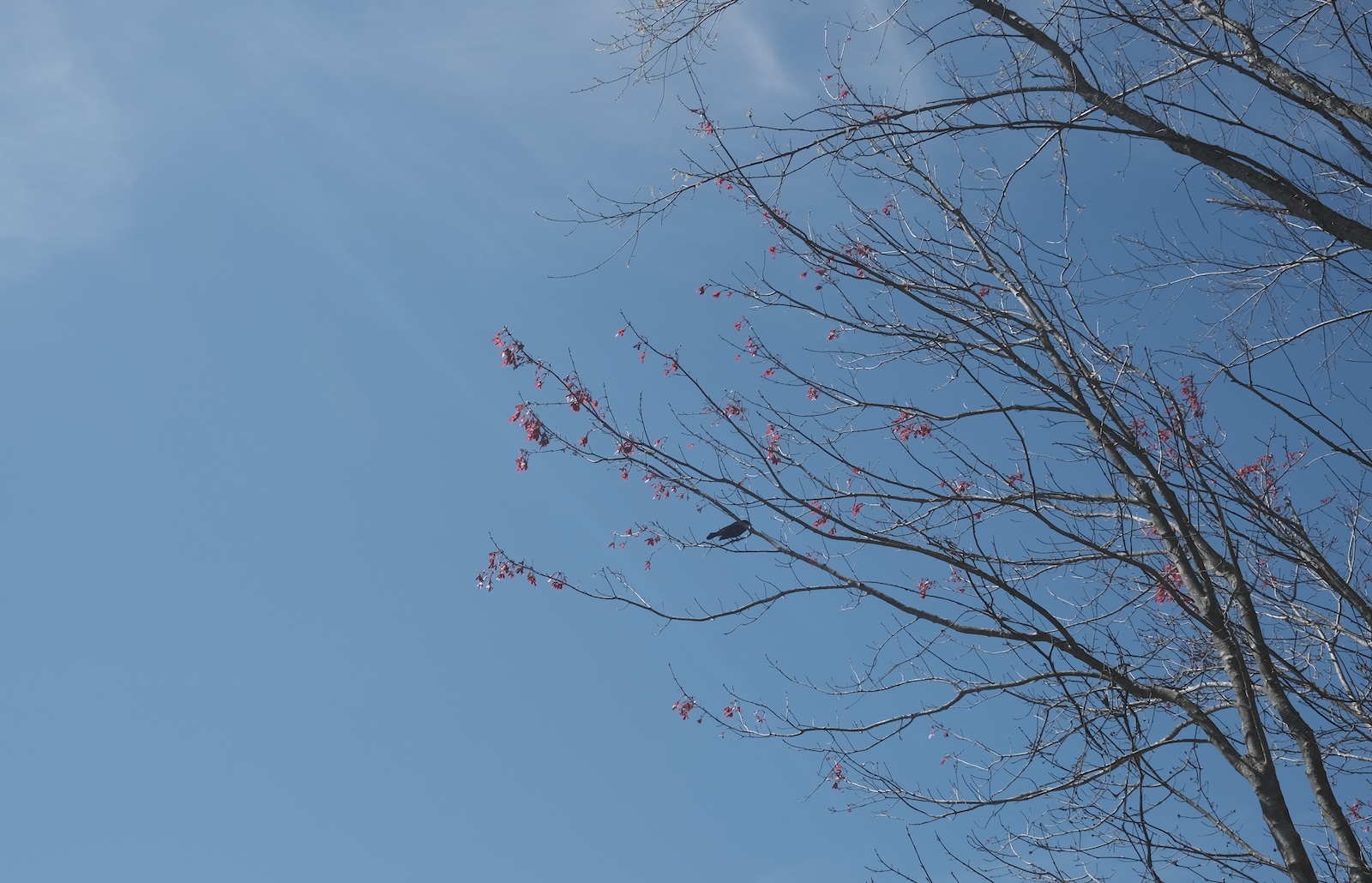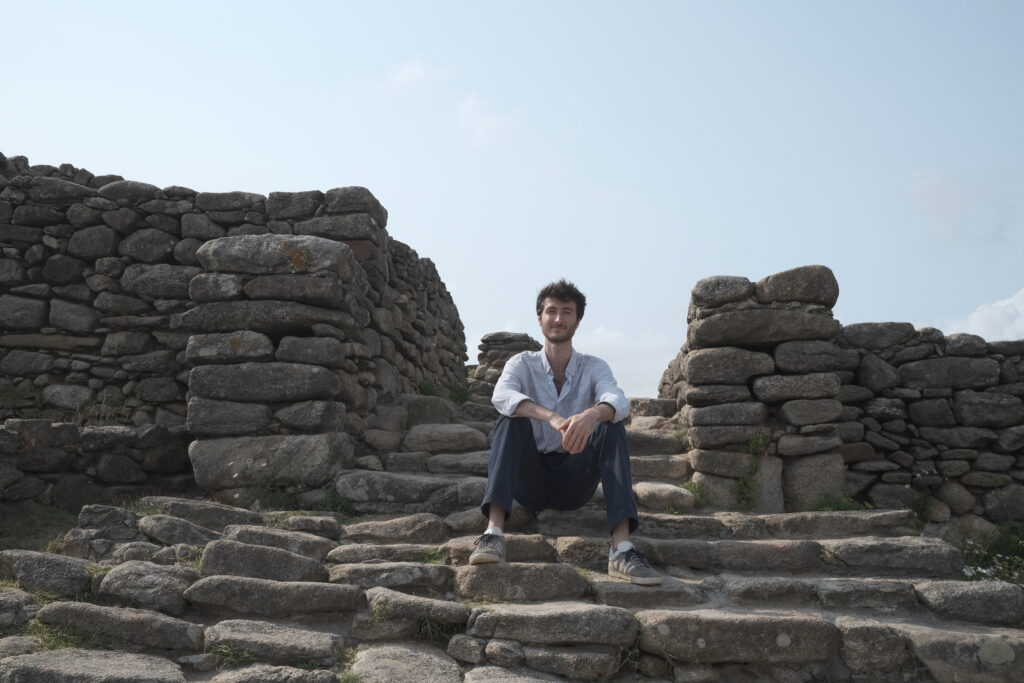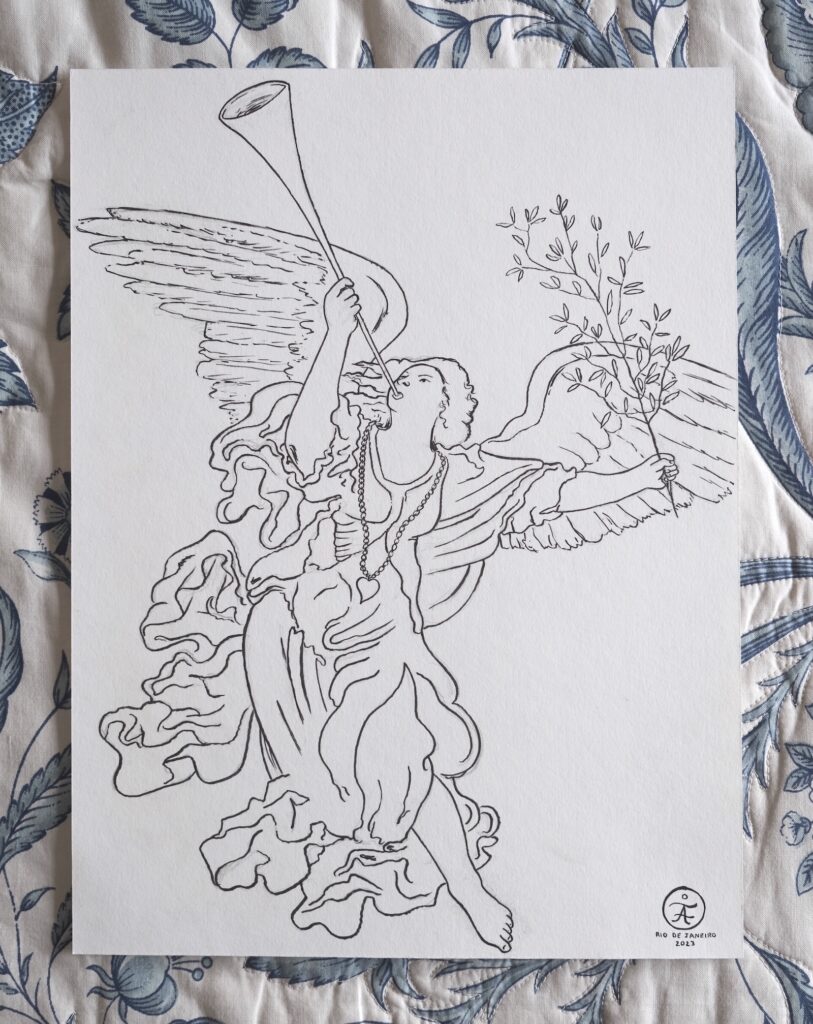This week, many good things have happened.
Two new plants have arrived at my house. I’ve named the small one Little Green (after the Joni Mitchell song I’m learning) and the large one, Ajax. I also have a new roommate, a large insect that has been camping on my window for several days. I haven’t given it a name yet. It unsettles me a bit. If it’s still there tomorrow, I’ll call it Mortimer.
I’ve had several exams at Berklee that have gone well.
On the other hand, my consciousness seems to be jumping between two paradigms. Let me explain: most of the time I feel like I live in a world made of matter, but more and more often I see that I actually live in God’s light. The difference is radical, and difficult to explain. From one perspective, I find myself walking down the stairs of my building. From the other, I am completely still and it’s the building that ascends around me. In one, I am singing in my room, looking at Serefé on the other side of the window. In the other, there is no distance between Serefé and me, and as I sing, it’s as if my voice flowed through its trunk and branches just like through my neck and mouth. There is no separation, and what remains is incredibly simple and beautiful. In that state of unity, my identity is no longer tied to Antonio; in those moments, I am the presence that contains and observes everything joyfully. Unfortunately, this state never lasts too long. It seems to require an enormous amount of energy, and it exhausts me, so I’ve also spent half the week in bed resting.
I’ve also had two very beautiful conversations that, despite exploring very different topics, both visited the same idea, which I would like to share here today. A friend asked me what I meant when I said God. The other asked me what I meant when I said that everything was within me (and within her). The answer was the same for both questions. It will also bring clarity to the previous paragraph about what is happening in my consciousness.
The idea begins here:
Right now you are reading this text. But the text doesn’t appear on its own, floating in the void. In order to read the text you need a screen. So yes, you are reading a text, but it’s just as true to say that the only thing you’re seeing is the light of the screen. A baby, in its innocence and not knowing what a text is, would only see the light of the screen.
This fact may seem like the most boring and obvious thing in the world, but it hides the key to making the most important discovery possible: recognizing, here and now, the presence of God.
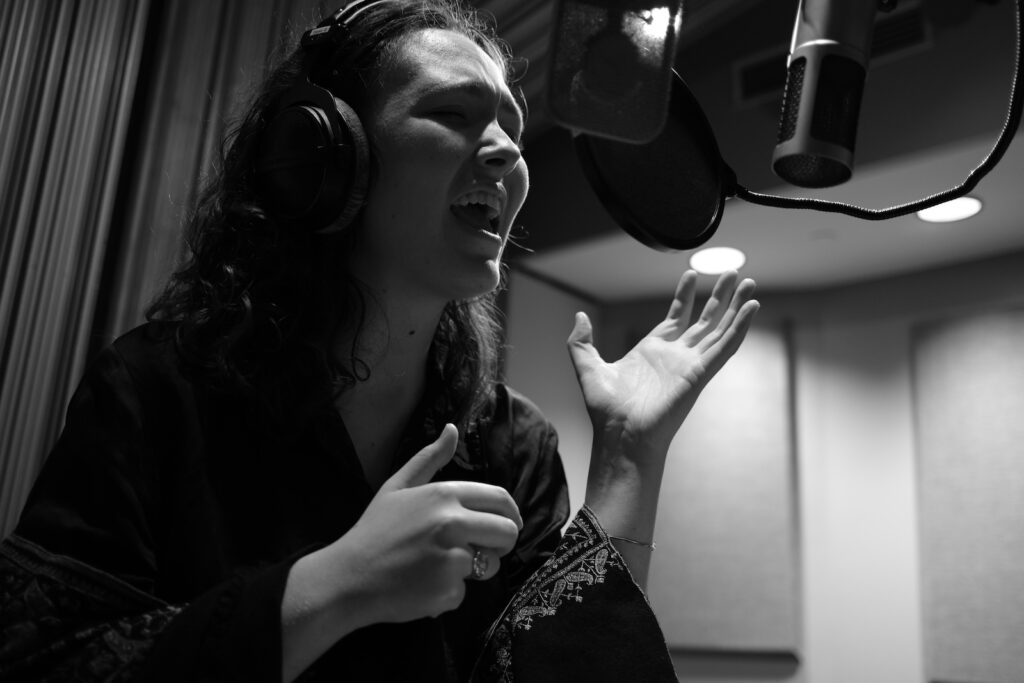
The screen, to function properly, has to be empty and black when it’s turned off. This way it can display the full range of colors, from white light to the total absence of light, which we call black.
A cell phone must also be silent. If it made the same noise as a Harley Davidson’s engine, it would be impossible to listen to music or call someone.
So, for a cell phone to be functional, it must be so discreet that it’s almost an absence: empty and silent.
Now, just as to see some content, there must be a support in which it appears (the paper for a book, the screen for this text), there also must be “something” in which your experience of the world appears. You may have never stopped to think about it, but what you perceive through your senses, your thoughts, your emotions, and your bodily sensations appear in “something”: the empty and silent field of consciousness.
It’s correct to say: this text is made up of a bunch of words, but it’s also made up solely of the light of the screen.
It’s equally correct to say: the world is made up of infinite different forms (people, cars, clouds, thoughts, emotions…), but it’s also made up solely of the light of consciousness.
I know this can be weird to think about, uncomfortable even. We’ve spent our whole lives so immersed in the movie that is our life that we never stop to think that this movie might be appearing on a “screen”. However, the effort to break that fourth wall is worth it beyond what we are capable of imagining.
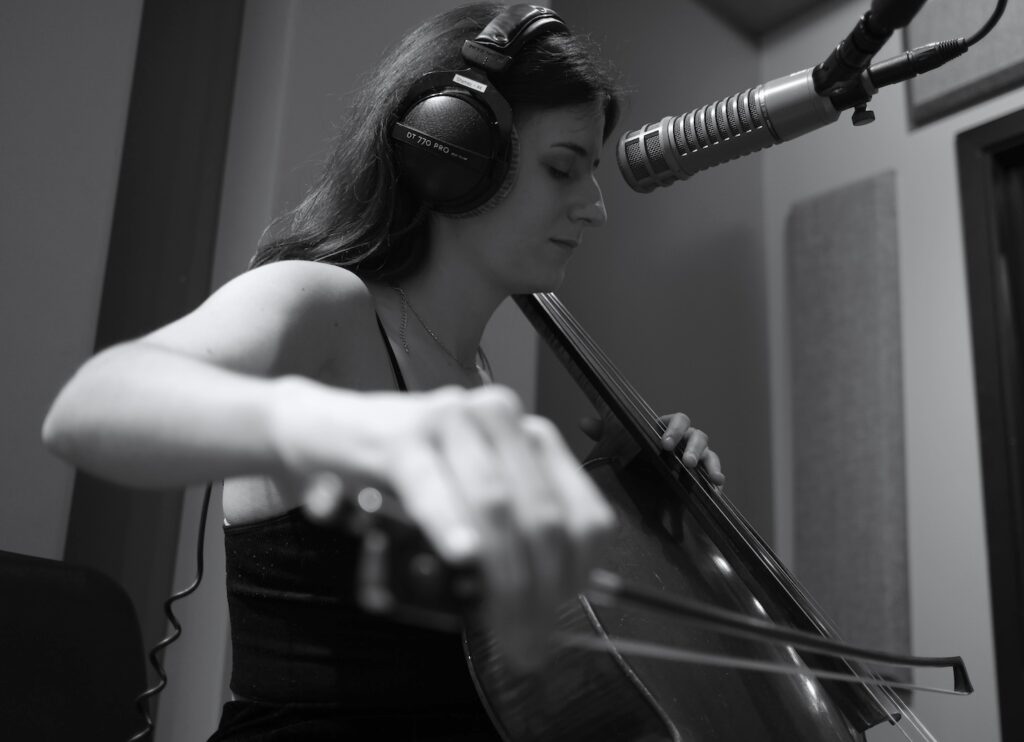
This sentence says: “I am the light of the screen.” If you take a second to contemplate its meaning, it leads you to realize that what you are seeing is light emitted by the screen. Right now, that thought doesn’t seem very relevant. But imagine you’re going through a difficult moment, avoiding some uncomfortable emotion, lost in the Instagram algorithm, hypnotized by its addictive, incoherent, and probably harmful content, and suddenly the phrase “everything you are seeing is the light of the screen” appears.
Boom!
A leap in your consciousness!
Just seconds ago, you were in a stranger’s garden, watching their dog dressed with a tiny watermelon costume, sunbathing.
After the leap, you’re in your bed, still looking at your phone, but free from its addictive loop. You look at it as a strange object. You realize that you’ve been lost in it for a while, and that your head hurts a little. Maybe it would be good to drink some water. And you get up to do something that is good for you. All thanks to a phrase that was true, and that by reading it and taking it seriously, it expanded your consciousness enough to remind you that you are free to leave the loop you were trapped in.
Well, something analogous is what Jesus Christ meant when He said, “I am the light of the world. Whoever follows me will never walk in darkness, but will have the light of life.”
Or what Buddha meant by saying that enlightenment is the light that dispels ignorance, freeing us from suffering by remembering our divine nature.
Christ and Buddha are not the names of two men who lived thousands of years ago. Their human names were Jesus of Nazareth and Siddhartha Gautama. Christ and Buddha refer to their divine essence, which is inseparable from your divine essence. There is only one divine essence. Christ and Buddha are your true names. You are the Light of the World, the consciousness that illuminates and knows your human experience.
In other words: you are not the meme about SpongeBob SquarePants or the footage of a war scene, you are the light of the screen. And the light of the screen, which is only one, shines equally in you and in all the other videos, emails, photos, etc. Similarly, you are not your body, nor your mind, you are the light of consciousness. And consciousness, which is one and universal, shines equally in you, in me, and in all living beings.
This is the idea that I shared with my friends and it is, with other symbols, what all sages, mystics, and prophets have been saying since man began to ask, “who am I?”
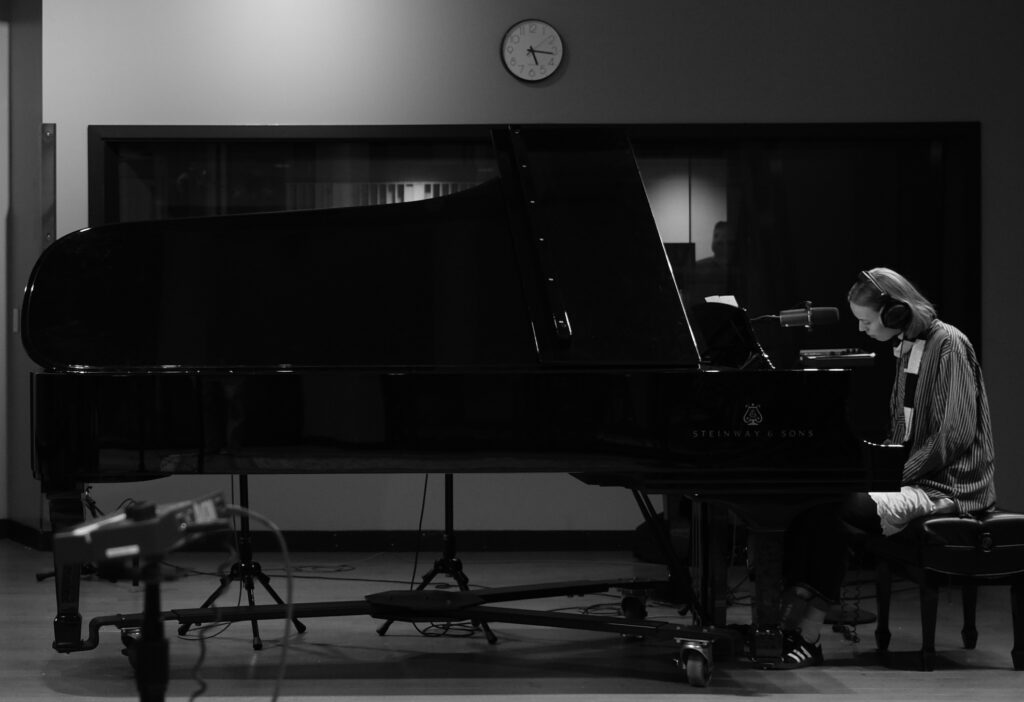
It’s not an easy message to understand at first, as everything we’ve experienced in our lives seems to indicate the opposite: we are separated from each other, we live stumbling blindly trying not to trip too much in a chaotic universe, and in the end we die. What then can we do with this luminous promise that is so difficult to accept, understand, and apply?
Western religions approach it from faith. Jesus says: try to love unconditionally, and if you do it in my name, at the moment of your death, I will be your spokesman in Heaven.
Eastern religions approach it from introspection, seeking the direct experience of truth. Buddha says: look within, train your mind to reach inner stillness, and in that stillness you will recognize that the body and mind are mere objects of your perception but that you, the subject, are universal consciousness, and you are beyond suffering and death forever.
Dr. Hawkins, speaking about this, says that in the end the best thing to do is to be a Christian Buddhist, or a Buddhist Christian. No wonder I resonate so much with his teachings; my own path has been a wandering from one tradition to another.
I grew up with a Catholic education. Then I was atheist until the epiphany I had at 21 (you can read about this in my second letter, “2. Epiphany”). After that experience, I returned to church, but I didn’t connect with any of the Christian symbols, so I drifted away again and wandered for a few years. I was more than a believer, I was a novice Gnostic, a fledgling mystic, but I had no religion or tradition or teacher to help me cultivate that seed. In the end, I connected more with Indian, Chinese, and Japanese spiritual traditions. And after three years of constant study and practice, my journey through the East led me to find, one fine day and out of the blue, that Christ was real and in my heart.
Since that miraculous day, it’s as if I coexist with a teacher who helps me heal and flourish, indicates me what to do with my life (today it was writing this letter and also taking these photos of Raphaella Hero and her band recording her new and beautiful song), and constantly reminds me who I really am, beyond the apparent limitations of this world. All from the intimacy of my heart.
I have my practices, which keep my body, mind, and spirit attuned to this inner reality. I have my guides, people who walk ahead of me and dissolve my doubts and inspire me. But I don’t go to church or follow any religion that presents itself as an external authority. I don’t have anything against it though, I really see its beauty and utility; it just doesn’t attract me much. The whole world is the sacred temple in which I meet God, and there is not enough space between Him and me for any sort of intermediary. In fact, there is no separation at all, just as there is no separation between the words you are reading and the light of the screen.
A.
